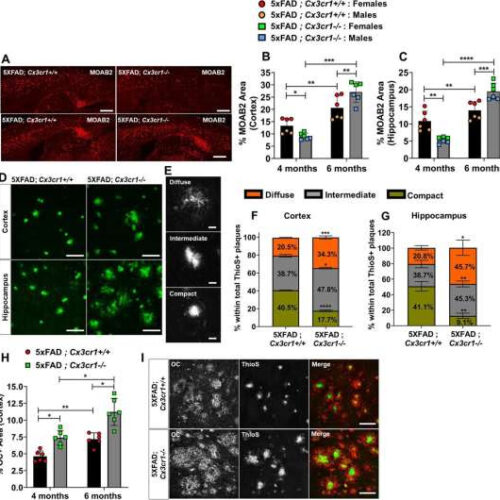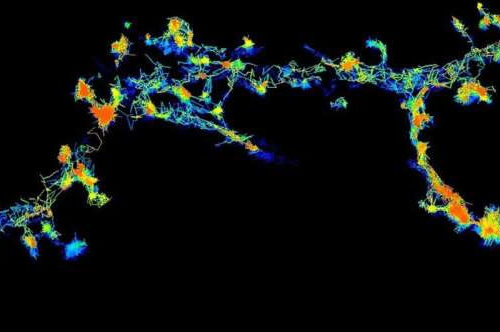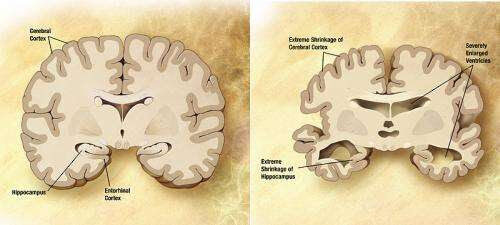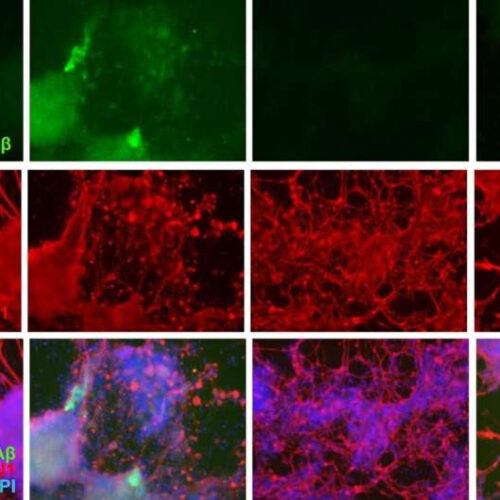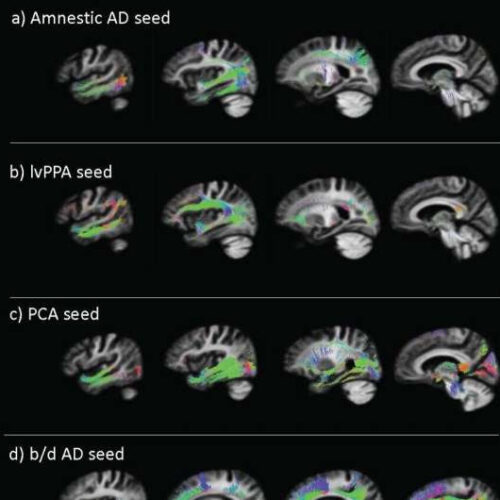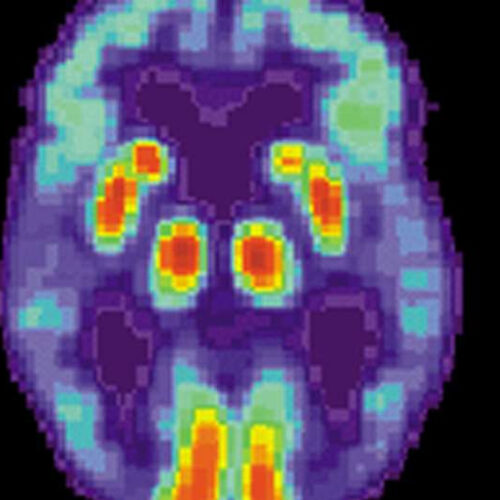by Indiana University School of Medicine Accelerated plaque deposition in 5xFAD mice deficient in Cx3cr1. (A) Accumulation of MOAB2+ Aβ42 plaques in (top panels) 4 month-old vs. (bottom panels) 6 month-old 5xFAD;Cx3cr1+/+ and 5xFAD; Cx3cr1−/− mice. Scale bars = 500 μm. Quantification of %MOAB2+ areas in the (B) cortex and (C) hippocampus of 4 and 6 month-old 5xFAD;Cx3cr1+/+ (black bars) and 5xFAD;Cx3cr1−/− (gray bars) mice. Data in B,C represent...
Category: <span>Alzheimer’s</span>
Cleaning up toxic ‘protein clumps’ could prevent dementia
by University of Queensland Credit: Queensland Brain Institute The clean-up of cellular “protein clumps” could prevent the onset of some types of dementia, according to a new study from The University of Queensland. Researchers from the Queensland Brain Institute made the discovery after focusing on the relationship between the enzyme Fyn and the protein Tau...
Scientists develop new mathematical model of Alzheimer’s disease
by University of York Diagram of the brain of a person with Alzheimer’s Disease. Credit: Wikipedia/public domain. Scientists have used a mathematical model to reveal how toxic proteins cluster together inside the brain during the early stages of Alzheimer’s. The researchers, from the University of York’s School of Physics, Engineering and Technology, say the discovery...
Study identifies blood pressure drug as potential treatment for Black patients with Alzheimer’s disease
by Cleveland Clinic Cleveland Clinic-led study identifies blood pressure drug as potential treatment for Black patients with Alzheimer’s disease. Credit: Cleveland Clinic Considering how patients from different ethnic groups respond to the same drug could be crucial to finding new Alzheimer’s disease treatments—a disorder the Alzheimer’s Association previously deemed a “silent epidemic” among Black adults....
Green tea and resveratrol reduce Alzheimer’s plaques in lab tests
by Taylor McNeil, Tufts University “In the case of these compounds that passed the screening, they had virtually no plaques visible after about a week,” says Dana Cairns. This image shows effects of resveratrol compared to control. Credit: Dana Cairns Alzheimer’s disease is the sixth leading cause of death in the United States, affecting more...
A telltale protein spreads throughout the brain in distinct patterns based on patients’ Alzheimer’s phenotype
by Delthia Ricks, Medical Xpress Identification of specific anatomical tracts using tau-PET seeds from each clinical group. Credit: J. Therriault, et al., Science Translational Medicine (2022) New imaging of patients with Alzheimer’s demonstrates how a telltale protein spreads throughout the brain based on the phenotype of the disease, i.e., whether the condition is dominated by forgetfulness, or...
New study expands range of potential Alzheimer’s drugs
UNIVERSITÉ LAVAL Québec City, October 25, 2022 – Alzheimer’s disease is associated with a reduction of insulin receptors in brain microvessels, which may contribute to brain insulin resistance and the formation of amyloid plaques, one of the disease’s hallmarks. That’s according to a study published today in scientific journal Brain by a team from Université Laval and Rush...
Old diabetes drugs slash the risk of dementia by more than a FIFTH, study finds
By MANSUR SHAHEEN DEPUTY HEALTH EDITOR FOR DAILYMAIL.COM PUBLISHED: 18:30 EDT, 11 October 2022 | UPDATED: 18:30 EDT, 11 October 2022 A class of diabetes drugs that have fallen out of fashion may help prevent Alzheimer’s, a major study suggests. Thiazolidinediones (TZDs) reduced the risk of developing the disease by more than a fifth in a study of more than half...
Newly identified mechanism may explain why women are more vulnerable to Alzheimer’s disease
Reviewed by Emily Henderson, B.Sc. Oct 4 2022 Case Western Reserve University researchers have identified a mechanism in brain tissue that may explain why women are more vulnerable to Alzheimer’s disease-;a finding that they say could help lead to new medicines to treat the disease. Specifically, the researchers found that the female brain shows higher...
Study: Decreased proteins, not amyloid plaques, are tied to Alzheimer’s disease
by University of Cincinnati PET scan of a human brain with Alzheimer’s disease. Credit: public domain New research from the University of Cincinnati bolsters a hypothesis that Alzheimer’s disease is caused by a decline in levels of a specific protein, contrary to a prevailing theory that has been recently called into question. UC researchers led...

